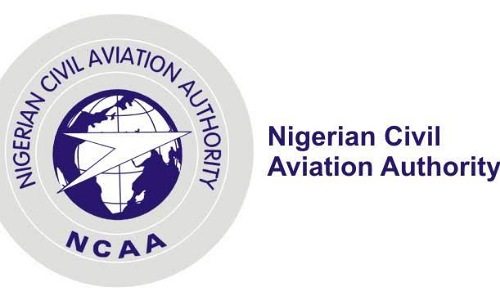Aviation
Airports record 57.55 million passengers in four years

LAGOS-A total of 57,550,193 passengers used 22 Nigerian airports between 2010 and 2013, the latest statistics released by the National Bureau of Statistics have shown.
The report titled Summary Report of Passenger Traffic: 2010-13 and Q1, 2014 which was released by the NBS in Abuja on Thursday showed that the number of passengers handled by the airports attained its peak in 2011 with a total of 14,899,958 passengers.
In 2010, a total of 13,891,677 passengers passed through Nigerian airports, increasing by 908,281 passengers or 6.5 per cent in 2011 to reach 14,899,958 passengers.
There was a drop in 2012 of 5.19 per cent or 773,168 passengers to give a total of 14,116,790 passengers, a figure which went up by 524,978 passengers or 3.72 per cent in 2013, reaching 14,641,768 passengers.
In 2010, domestic passenger travel stood at 10,753,725 passengers, increasing by 549,491 passengers or 5.11 per cent in 2011, yet decreasing by 1,627,356 passengers or 14.4 per cent in 2012 to reach a total of 9,675,860 passengers.
Growth was positive in 2013, although it slowed to 4.12 per cent, representing an increase of 398,668 passengers, reaching 10,074,528 passengers, the report said.
For international passenger travel, from the 3,227,952 passengers recorded in 2010, there was an increase of 358,790 passengers or 11.12 per cent in 2011. In 2012, the number of passengers rose by 854,188 or 23.82 per cent to reach 4,440,930 passengers.
By 2013, there was a marginal increase of 126,310 passengers or 2.84 per cent, although the total recorded was 4,567,240 passengers.
The report showed that the airport most frequented by passengers was the Murtala Muhammed Airport in Lagos, which had the greatest number in all years under review.
In 2010, 6,273,545 passengers travelled through the airport, making up 44.87 per cent of the annual total.
The number increased each year, by 472,745 passengers or 7.54 per cent in 2011; 132,996 passengers or 1.97 per cent in 2012 and 381,892 passengers or 5.55 per cent in 2013.
The airport’s share of total passengers also expanded over the period to 45.31 per cent of the total in 2011, 48.73 per cent in 2012 and 49.59 per cent in 2013.
According to the report, the second most used airport in Nigeria is Abuja’s Nnamdi Azikiwe, which had 3,922,547 passengers in 2010 or 28.05 per cent of the passengers. The number increased in 2011 by 293,600 passengers or 7.48 per cent, increasing its share to 28.32 per cent of the total.
However, in 2012, there was a decline of 536,923 passengers or 12.73 per cent to reach 3,679,224 passengers. The airport’s share of the total dropped to 26.06 per cent.
There was a slight uptick in 2013, with 266,673 or 7.25 per cent more passengers, reaching a total of 3,945,897 or 26.95 per cent of the annual total.
Port Harcourt was the third most frequented airport in Nigeria. At 1,211,816 passengers, it held 8.67 per cent of the total in 2010. After growing by 134,795 passengers or 11.12 per cent in 2011, passenger numbers dropped by 154,465 people, or 11.47 per cent in 2012.
From the 1,192,136 passengers travelling through Port Harcourt in 2011, there was a marginal increase of 28,170 passengers or 2.36 per cent in 2013, reaching 1,220,306 passengers or 8.33 per cent of the total in the year.
The airport with the fewest passengers is Akure airport in Ondo State, which carried just 6,640 passengers in 2010, making up 0.05 per cent of the total.
The busiest airport for the quarter remained Murtala Muhammed Airport, Lagos, with 1,683,375 passengers or 49.27 per cent of the total. This was followed by Abuja airport, which hosted 907,989 passengers, or 26.57 per cent of the total.
For domestic flights Murtala Muhammed Airport had 898,896 passengers or 38.21 per cent of the total and Abuja had 701, 249 passengers or 29.81 per cent of the total. Port Harcourt had 274,186 passengers or 11.66 per cent of all passenger traffic, while Owerri airport in Imo State had 75,356 passengers or 3.2 per cent of the total.
Punch-
Aviation
JUST IN: NCAA Suspends 3 Jet Operators

The Nigerian Civil Aviation Authority (NCAA) has taken action by suspending the permits of three private jet operators due to their involvement in commercial flights.
Chris Najomo, the Acting Director General of the NCAA, issued this suspension during a briefing to all airlines on Tuesday.
Additionally, Najomo ordered a re-evaluation of all PNCF permits within a 72-hour timeframe.
The head of the NCAA stated that Festus Keyamo, the Minister of Aviation and Aerospace Development, had instructed the discontinuation of private jets’ commercial use in 2023.
Despite this directive, the operators persisted in their commercial activities.
Najomo said “Subsequently, in March 2024, the NCAA had issued a stern warning to holders of the permit for non commercial flights, PNCF, against engaging in the carriage of passenger cargo or mail for hire and reward.
“The Authority had also deployed its officials to monitor activities of private jets at terminals across the airports in Nigeria.
“As a consequence of this heightened surveillance, no fewer than three private operators have been found to be involved in violation of the annexure provision of their PNCF and Part 9114 of the Nigeria Civil Aviation Regulations 2023.
“In line with our zero tolerance for violation of regulations, the Authority has suspended the PNCF of these operators.”
Aviation
Keyamo Charges NCAT To Produce 4,203 Controllers By 2037

Minister Festus Keyamo has urged the Nigerian College of Aviation Technology in Zaria, Kaduna State, to create new solutions that can speed up the training of skilled air traffic controllers.
This call comes as Africa anticipates a need for 4,203 new air traffic controllers by the year 2037.
The minister made this statement on Wednesday during the 34th IFATAC Africa and Middle East Regional meeting in Abuja.
Addressing the gathering, the minister noted that the goal of training 4,203 new air traffic controllers aligns with the projection from the International Civil Aviation Organization (ICAO).
He further affirmed the ministry’s commitment to offering full support to NCAT, ensuring it not only meets but surpasses its mandated duties and roles.
He said “ICAO projects that by the year 2037, Africa will require 4,203 new air traffic controllers. The onus rests on the Aviation College of Aviation Technology (NCAT) to develop innovative ideas solutions to accelerate the training of new and proficient air traffic controllers.
The minister, represented by acting director Michael Chiko from Air Safety and Administration, highlighted the rapid evolution of the air traffic control profession.
He stated “The profession of air traffic control has evolved rapidly, transitioning from simple flag signalling to sophisticated technologies. This evolution facilitates management of the surging number of aircraft traversing our
skies daily.
“As a vital, indispensable component of air safety, air traffic controllers are responsible for the safe, orderly and expeditious flow of air traffic. Therefore, I am not unaware of the critical role you play and invariably, the heavy burden you bear.
“This burden is compounded by increased air traffic, workforce shortages, technological shifts; necessitating rigorous training regimes.
“More so, with the emergence of unmanned aerial vehicles, reshaping dynamics and challenging the norm, it is thus paramount to prepare for the future and indeed Nigeria like other countries must prepare for the future.” he added
During the event, Mr. Lawrence Pwajok, representing Engr. Mohammed Odunowo, the managing director of the Nigerian Airspace Management Agency (NAMA), emphasized the relevance of the 34th IFATCA Africa and Middle East Regional meeting’s theme, titled ‘Shaping the Future: Trends and Insights On ATC Training for Tomorrow’.
Pwajok highlighted the significance of this theme, especially as air traffic control commemorates 100 years since its inception.
He suggested examining the historical perspective of air traffic control, tracing its origins from Croydon airport a century ago to its present form in modern airports like Dubai, Istanbul, JFK, Charles De Gaulle, among others.
This historical comparison aims to provide insights into the potential trajectory of the future air traffic control system over the next century.
He added “It is obvious that the future air traffic management system will be characterised by extensive application of automation, digitization and artificial intelligence.”
Aviation
Airlines Must Pay Compensation For Flight Disruptions – Keyamo

Festus Keyamo, the Minister of Aviation and Aerospace Development, underscored the obligation for airlines to provide compensations in cases of flight cancellations and delays.
Festus Keyamo conveyed this directive during a meeting with the heads of agencies affiliated with the ministry on Tuesday.
He said, “We are not deaf to the cries of Nigerians about delays and canceled flights. The law is there and we are looking at how to enforce those laws for compensation of Nigerians who bear the brunt of cancellation of flights and disrupting the activities.
“The process of grounding the airline or taking the airlines to court will create more problems.
“So if the reason for the delay and cancellation of flight is their fault they must pay compensation. And what I am suggesting is that if they don’t get cash back they must get some rebate when they buy next ticket.
“I have set up a committee to look into it such that they can generate a code that they can use when they want to purchase the next ticket.
“We are concerned about the passenger satisfaction and the safety of the air travelers,” he said. The minister directed the Director-General of the Nigerian Civil Aviation Authority to prepare a weekly catalogue of canceled flights.
He further instructed the Nigeria Safety Investigation Bureau to finalize investigations into all air accidents and mishaps within the upcoming 10 days.
He said: “For the recent incidents that happened recently, some minor, and others classified as serious incidents although there were no fatalities. The NSIB is investigating these incidents and I have directed them that within 10 days from today they must submit their report of the incidents and what actually transpired.” he added











